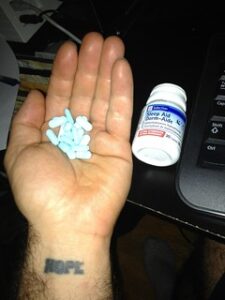Recovery from Mommy Makeover
The question has loomed for ages: Do antidepressants taken by pregnant woman increase the risk of stillborn pregnancies or infant mortality?
Experts have battled over the results for years. Some claim woman should not take such medications for fear it harms the baby. Others have question whether antidepressants are the sole factor of causing stillborn deaths or infant mortality.

Today, the debate may have ended.
A new study published this week in the Journal of the American Medical Association revealed that women who take a common type of antidepressant may not be the sole reasons for any increased risks of having a stillborn child or losing an infant early in life.
Researchers looked the medical records of 1.5 million newborns and their mothers in Norway, Denmark, Sweden and other Nordic countries. Results first appeared to indicate that woman taking the meds were more likely to deliver a stillborn child or lose it before its first birthday. The researchers, however, dug deeper.
They found that when a woman’s depression, smoking habits and age were factored into the results, the risks between woman who were taking the meds and woman who were not taking the meds were roughly the same.
Furthermore, the new study suggests that when it comes to infant mortality, experts need to explore more the effects of medication on the mom and the baby.
They need to examine the health of a maternal lifestyle, the severity of depression and more, which are key factors in stillborn and child mortality.
In fact, a woman who is not taking common antidepressants may be a more harmful infant caretaker than those who are on the antidepressants.
Only time will tell if this study ends the debate. But one thing is clear: if a woman is pregnant and taking antidepressants, they need to examine the health risks closely. Be cognizant of the potential fallout of taking certain medications and consult a medical professional before beginning any treatment.
